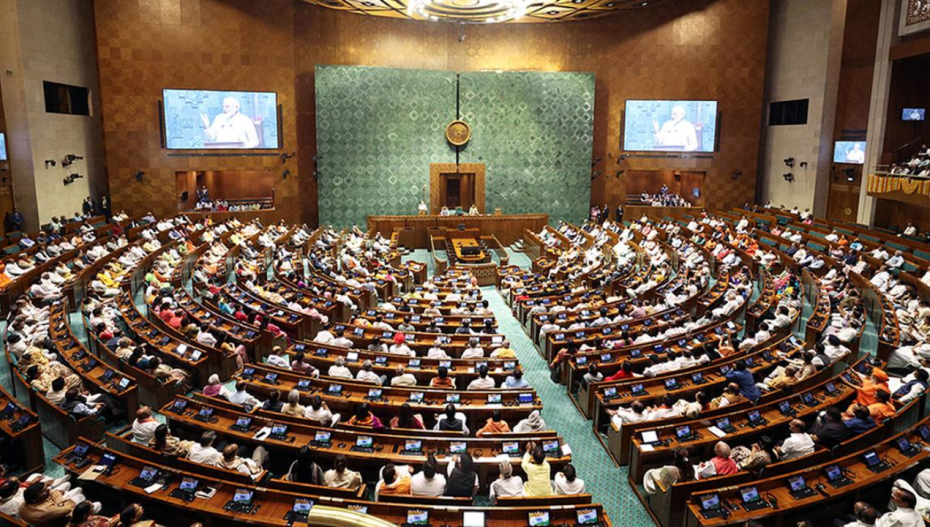A constitutional amendment bill to hold Lok Sabha and assembly elections simultaneously is expected to be introduced in Parliament on Tuesday and may be referred to a joint committee of both Houses.
A senior government official stated that the Constitution (One Hundred and Twenty-Ninth Amendment) Bill, 2024, commonly known as the “One Nation, One Election” Bill, is likely to be presented by Union Law Minister Arjun Ram Meghwal.
Following its introduction, Meghwal would request Speaker Om Birla of the Lok Sabha to forward the bill to a Joint Committee of Parliament for additional deliberations.
The strength of the MPs from different parties will determine the pro-rata composition of the joint panel.
In addition to having a number of members, the BJP will serve as the committee’s chairman as it is the largest party, the official stated.
According to the official, Union Home Minister Amit Shah, who served on the high-level committee headed by former President Ram Nath Kovind and suggested holding simultaneous, phased elections for the Lok Sabha, state assembly and local bodies, is probably going to be in the Lower House when the bill is introduced.
The Union Cabinet decided to keep local body elections “as of now” while simultaneously holding elections for the Lok Sabha and state assemblies last week.
Meghwal may advise the Lower House to send the bill to a joint committee since it would require more extensive consultations with the public and parliamentarians.
On the same day, the speaker will ask the parties for the names of potential panel members.
As per the rules, the parties are at risk of losing their membership if they fail to notify the speaker about the members they want to send to the panel.
The functionary said that by the evening of the day the bill is introduced, the speaker would reveal the composition of the committee.
The proposed committee will have a 90-day initial term, although it may be extended.
Two bills to hold the assembly and parliamentary elections simultaneously have been approved by the Union Cabinet.
During the “one nation, one election” consultation process, Kovind stated that 32 parties were in favour of the concept, while 15 were against it.
Polls were conducted simultaneously throughout the nation from 1951 to 1967.
Since 1983, several papers and studies have discussed the idea of simultaneous elections, which basically suggests a return to the earlier practice of conducting polls concurrently.
Also Read: DGGI Identifies Over 600 Online Gaming Firms in Tax Evasion Probe












